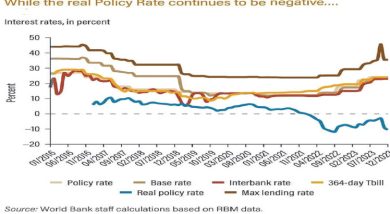Forest-based businesses key to Wealth , job creation—report
A report by the Department of Forest has identified forest-based enterprises (FBEs) as key to wealth and job creation in the country.
FBEs are businesses that use forest resources such as mat-making, pottery, bamboo selling, wine-making, bee-keeping, juice-making, curios and others.
The report, entitled Assessment of Forest-based Enterprises in Malawi and was presented to Karonga and Chitipa district forest offices last week, was meant to assess the status of FBEs in the country, thereby informing government and other stakeholders on the future of forest-based businesses.
The report identifies growing local and international demand for forest resources; wealth generation and employment creation; availability of external support and conducive forest policies as some of the opportunities in the forest sector.
But the report, compiled and released under the Forest Department’s Improved Forest Management for Sustainable Livelihood Programme (IFMSLP), observes that low productivity of products such as honey, lack of market information, brand recognition and quality assurance are some of the challenges chocking FBEs.
“Forest-based enterprises are constrained by lack of value adding, marketing of products as well as absence of an explicit supportive policy framework for commercialisation and exportation of such products.
“Lack of sustainable forest management, short-shelf life of some products such as mushroom and baobab juice, dwindling resource base of some trees such as baobab and long distances people travel to markets are also constraints to FBEs,” reads the report in part.
Looking forward, the report proposes robust engagement with the private sector, genuine community participation and ownership of FBEs, transparent financial management, sound marketing research, quality assurance and effective monitoring and evaluation if FBEs are to succeed in the country.
IFMSLP is a six-year (two-phase) programme that supports the forest sector in the country under the Malawi-European Commission Country Strategy Paper.
The aim of the programme—being implemented in Zomba, Machinga, Chikhwawa and Nsanje in the South; Ntchisi, Dedza, Kasungu and Ntcheu in the Centre; and Rumphi, Mzimba, Karonga and Chitipa in the North—is to reduce poverty and create employment opportunities for rural people.





